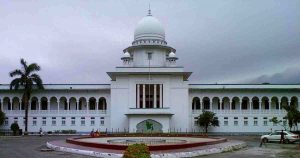by Heinz Sünker on 3rd March 2020
Educational research models children as autonomous actors. Education policy, notably in Germany, still, however, aims to guide innate capacities into adulthood. Yes, it is true that children embody ‘the future’ of society, at least in conjunction with all other generations. Yes, many in our society think that they can have a say on children and the institutions where children grow up. They all—although they often do not remember it so well—were children and attended nursery and school. Above all, however, many have interests in this context, political, economic or parental—aimed at the production of ‘useful citizens’, ‘reliable and required labour’ or a ‘secure retirement’ respectively.
In his lecture ‘On pedagogy’ in 1803, Kant already recognised this problem in principle and he observed: ‘1) Parents generally only care that their children get on well in the world, and 2) the princes regard their subjects only as instruments of their intentions.’ These attitudes and intentions were named as obstacles in the way of the perfection of humanity.
Science, in the shape of childhood research and its efforts to enlighten, therefore has to deal in many ways with everyday consciousness and interests, which it is a socially significant task to examine in each case. In terms of communicating childhood research and educational research into children’s policy and education policy, this task is especially challenging—since these researches, as with these policies, are to do with the democratic future of our society (also the survival of our planet), which is founded on the reflexivity, social judgement and political capacity of all its citizens.
Social formation
For about 30 years, social-scientifically accentuated ‘new childhood studies’ have developed in the Anglo-Saxon and Scandinavian sphere. These have been concerned, first of all, with insight into the social formation of ‘childhood’ in the framework of a generational order of society; secondly, with the modelling of the child as a relatively autonomous, competent actor, and, thirdly, with the relief of the child from naturalistic ideas and images. This is crucially connected to an emphasis on the intrinsic value of the life phase ‘childhood’ and is directed against its demotion purely to a transition on the way to adulthood—in short, an emphasis not on becoming but on the currency of concrete existence.
Children are seen, on the one hand, rather uniformly as a generation but, on the other, as differentiated in their living conditions with regard to class, gender, ethnicity and so on. This new view of childhood and children, as of their lives and experiences, becomes important for necessary civilisational developments in connection with children’s politics and the discourse on the rights of the child—in view of the catastrophes of the 20th century and the problems already weighing heavily on the 21st.
It is particularly significant here that the UN Convention on the Rights of the Child contains a link between children’s policy and children’s rights, education policy and educational rights, which takes as its starting point the emphasis on ‘the best interests of the child’ as the benchmark for the treatment of children and the development of institutions (article 3). This is conveyed directly with the determination that the ‘survival and development of the child’, as thus urgently formulated, must be ensured ‘to the greatest possible extent’, socially and politically (article 6).
The wellbeing of all children thus forms the basis of a debate about development opportunities and a ‘good life’ from a global perspective, so further specifications deal with the protection of rights, infrastructure developments and participation. The convention is impressive when it comes to the relationships among these dimensions. And it is challenging in its capacity to connect with essential questions of childhood theory, at its centre the subjectivity of the child and children’s politics—with a clear priority of ‘participation’ over ‘representation’.
Education for democracy
Supporting this requires a democracy-promoting education policy and practice that is diametrically opposed to the multi-stranded system of educational apartheid (with the violation of the ‘child welfare principle’) in Germany, which stems from the ideology of ‘talents’. Education for all, in the interests of all, is in line with the demand for a democratic political culture based on the participation of all.
Against the division of our society, which follows from the production of social inequality, only an overcoming of class-based interests and strategies can help. This begins with positions on child policy and child law and practices—the equality of all children thus corresponds to the realisation of their education.
(Prof Heinz Sünker is director of the interdisciplinary research institute ’Childhoods, Societies’ at the University of Wuppertal.)
– Social Europe




